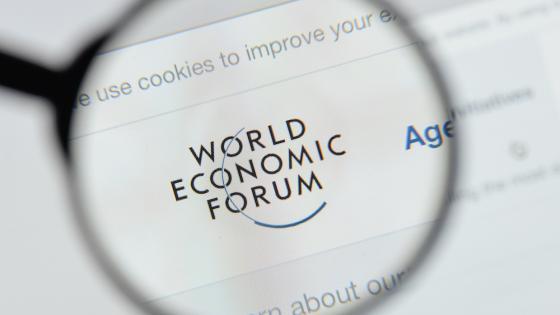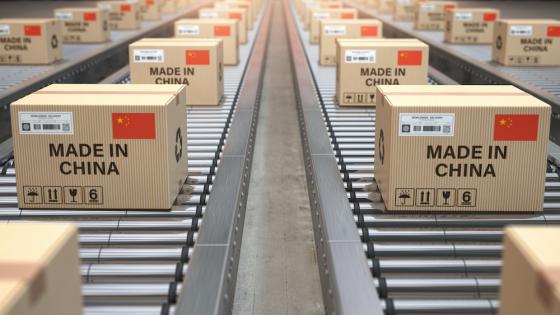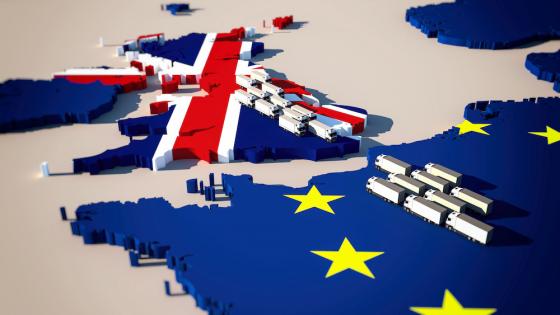The World Economic Forum recently ran a survey with IPSOS of 20,000 people in 25 countries, with seemingly contradictory results. While three quarters of those surveyed thought that expanding trade was a good thing, less than half thought globalisation was good for their own country. The numbers of those concerned about globalisation had grown considerably between 2019 and 2021.
Understandably, people want more of the benefits from globalisation and fewer of the harms, to increase the gains while achieving fair outcomes for all. Trade policy appears generally headed in the right direction but has moved slowly in many areas and has not been adequately complemented by social and environmental safeguards.
Getting practical
In many cases, the biggest barriers to global exchange are practical, especially for small to medium-size enterprises (SMEs). Working with Harvard economist Robert Lawrence in the mid-2000s, we created the Enabling Trade Index (Lawrence et al. 2008). Inspired by our longstanding Global Competitiveness Index but focused on the specific needs of exporters and importers, it quickly became a reference point and performance indicator for governments hoping to cut unwanted trade frictions. It revealed what really matters in making trade easier, such as the outsized importance of information to help companies know what costs they will face, what delays to expect, what paperwork is needed, and so forth. This still holds true today amid severe supply chain disruptions.
To highlight the importance of the issue, we embarked, together with the World Bank, on a calculation of the economic value at stake for different regions in addressing these red tape barriers to trade. To the surprise of many observers, we showed that the value of such reforms would surpass those of eliminating all tariffs around the world, driving GDP uplifts and job growth especially in developing countries. Pascal Lamy, then Director-General of the World Trade Organization (WTO), noted in Davos that the Enabling Trade programme was a significant contributor to the success of multilateral trade facilitation negotiations.
This regional work on trade practicalities evolved into helping business and government work together on specific difficulties they were facing in different countries; for example, supporting efforts in Vietnam to inculcate greater transparency in its customs administration. CEOs meeting in Davos recognised the need to scale up this work for greater impact. Fortuitously, a group of donor organisations, led by USAID, were coming to similar conclusions about the need to invest in trade facilitation. They recognised that success in this domain could not be achieved without the active participation of the private sector. Thus, at the WTO Ministerial in Nairobi, in December 2015, Director-General Roberto Azevêdo, US Trade Representative Michael Froman, and an assembly of business leaders announced the creation of the Global Alliance for Trade Facilitation (Azevêdo 2015).
By the end of the current phase in 2024, there will likely be more than 60 Alliance projects, spanning certification to risk management and delivering measurable, significant changes (Global Alliance for Trade Facilitation 2022).
Building blocks
Ahead of the Nairobi Ministerial, the Forum embarked on a joint exercise with the International Centre for Trade and Sustainable Development named the E15 Initiative,1 mobilising several hundred experts from business, academia, and government to explore policy options across 15 broad areas of inclusive, sustainable trade. Some hundred-plus policy white papers synthesised the state of trade policy thinking and assembled a broad consensus on priorities for a new approach.
Clear topics of interest were e-commerce, services, and investment. At the Buenos Aires Ministerial, where we co-organised a business summit as well as contributing to a parallel Trade and Sustainable Development summit, we tabled the topic of ‘Facilitation 2.0’ – or the expansion of the facilitation approach to digital trade, investment, and services. At the same time, together with Jack Ma of Alibaba and Azevêdo of the WTO, we launched the Enabling Ecommerce programme to help SMEs in emerging economies benefit from the e-commerce revolution.
Joint statement initiatives on digital trade, investment, and services were major outcomes from this ministerial. Formal plurilateral negotiations on e-commerce were launched at Davos in 2018 by 76 WTO members, and on investment facilitation for development in 2019 among 99 members. The recent attainment of domestic services regulation points to the success of the facilitation approach in shifting the focus of the trade system towards practical approaches and faster, more visible results, both regionally and multilaterally.
Harnessing digitalisation
Digital trade is both a significant opportunity and a challenge to responsible globalisation. It allows far more immediate access for businesses and consumers to partners around the world. At the same time, the new regulatory questions raised by digitalisation demand a considerable degree of international coordination. Let’s take three examples: data flows, tax, and competition.
Data governance is important for privacy protection, the avoidance of censorship, and to avoid an overload of spam. Yet while we must resist being subject simply to the rule of the jurisdiction with the least stringent controls, a closed-off world of non-communicating fiefdoms would hardly be an improvement. Following Prime Minister Abe’s Davos call for “data free flow with trust” as a key outcome from Japan’s G20 presidency, we worked with his government to build a neutral community that set out frameworks which allow precisely this trusted flow. Prime Minister Kishida renewed the call last month.
The risk of harmful tax competition – whereby digitalisation allows economic activity to be shifted intercontinentally at the click of a button – is at the root of many fears of globalisation. Starting in 2019, at Davos and other venues, we organised a series of discussions bringing together unions, NGOs, academics, large digital businesses, accounting firms, finance ministers, and intergovernmental organisations. Positions were far apart at the outset, but dialogue produced consensus recommendations (Mosquera Valderrama, I and Heitmuller, 2019). We have seen important steps taken towards a global minimum for corporate tax and a reallocation of taxing rights on the largest and most profitable companies among the countries in which they do business.
Digitalisation and online platforms have provided numerous benefits to firms and consumers, including increased choice and economic opportunity, but they can also raise market concentration and competition concerns. Features of many digital platforms – multi-sidedness, zero price, use of data, and network effects – have led competition authorities to rethink traditional tools. Here again, our community has worked to provide a balanced, evidence-based reassessment of the proper role of competition policy (Akman 2019).
Recovering from the crisis
The greatest shock to globalisation in the recent era is the COVID-19 pandemic.
Early in the pandemic, we were concerned that unilateral restrictions on protective equipment and medical supplies could spiral, creating a situation in which we would all lose out as each country depends on others for inputs. The Forum convened trade and supply chain leaders with trade ambassadors to share live information on the continued functioning of the system. Guidance to avoid unnecessary export restrictions and allow the global supply network to respond was shared with G20 trade ministers. Thankfully, cool heads prevailed and greater restrictions were averted.
Attention then turned to resilience and reshoring. While overconcentration and bottlenecks in supply chains are a concern, robustness generally comes from diversity and choice. Trade builds resilience. Governments have stepped in with stimulus measures, rescue packages, subsidies, and more. This increased interest in the pros and cons of industrial policy is an opportunity for a holistic global conversation on the role of the state in the economy (Dawar and Ronen 2022).
As we build back from the pandemic, the environmental crisis presents an ever-greater threat. Trade and investment must play a role, and quickly, in disseminating environmental innovation and conveying environmental demand signals along supply chains; they must not be allowed to become reasons for inaction (Botwright et al. 2021).
In October 2021, the World Economic Forum released a “Trade for Tomorrow” message in support of WTO Director-General Ngozi Okonjo-Iweala’s efforts. This call to action, signed by CEOs from each continent and developed with multi-stakeholder input, urged more egalitarian and consequential outcomes from trade cooperation (World Economic Forum 2021). We all have a role to play in delivering these results.
Globalisation has much to offer. It contributes fundamentally to our prosperity and freedom. It must, however, be a form of globalisation that brings improved living standards and justice to all. Faster progress towards this goal demands effective public-private cooperation.
References
Akman, P (2019), “Competition Policy in a Globalized, Digitalized Economy”, World Economic Forum.
Azevêdo, R (2015), “WTO trade facilitation in action — launch of Global Alliance for Trade Facilitation”, 17 December.
Botwright, K, J Gladstone, K J McCarthy, C Schuetz, J Stewart and J Whittaker (2021), “Delivering a Climate Trade Agenda: Industry Insights”, World Economic Forum, 20 September.
Dawar, K and E Ronen (2022), “Industrial Policy and International Competition: Trade and Investment Perspectives”, World Economic Forum, 08 February.
Global Alliance for Trade Facilitation (2022), “Our presence”.
Mosquera Valderrama, I and Heitmuller, F (2019), “Corporate Tax, Digitalization and Globalization”, World Economic Forum.
World Economic Forum (2021), “Trade for tomorrow: A collective call to action to make trade work for all”, 30 September.
Endnotes
1 http://e15initiative.org/



